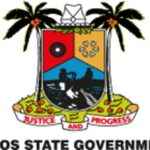Buhari Says Corruption, Laziness Dog Civil Service
 President Muhammadu Buhari has lamented that most civil servants in Nigeria are lazy and known for inefficiency, low productivity and corruption.
President Muhammadu Buhari has lamented that most civil servants in Nigeria are lazy and known for inefficiency, low productivity and corruption.
The president said this in Abuja at the inauguration of capacity building programmes, tagged “Structured Mandatory Assessment-based Training Programme and Leadership Enhancement and Development Programme”, for public servants.
Buhari, who was represented by the Vice President, Prof. Yemi Osinbajo, noted with regrets that Nigeria’s civil service was facing dwindling fortunes due to its inability to articulate a vision and develop the required capacity to implement such vision.
Buhari said, “Many, who mourn the decline of the civil service today from its days as ‘primus inter pares’ in the Commonwealth to one which has earned a reputation for inefficiency, low productivity, corruption and insensitivity to the needs of the public, fall into the error of thinking that the problem is a poverty of ideas and capacity on the part of the civil service; whereas, it is the inability to clearly articulate a vision, ensure that the service develops the required capacity to articulate and implement the various components of the vision.
“The citizen, regardless of station in life, must be respected by the governing authorities and treated with dignity.
“Flowing from these is the imperative that our society must be governed by the rule of law, administered by a trustworthy, fearless, impartial and efficient judiciary”.
He described the federal civil servants as the foot soldiers in Nigeria’s march to a great destiny, saying he believed the federal civil service would not fail Nigerians.
“An army cannot afford indiscipline, inefficiency or lack of focus, especially because the hopes and aspirations of a whole society rest on your shoulders,” the President said to the civil servants.
Buhari said the civil service should provide answers to questions such as “What are the strategic and financial planning initiatives important in a strong private sector led, free market economy but with a robust social protection system for the poor majority?
“What are the crucial communications to make to the people in a season requiring sacrifice and perseverance on account of falling revenues or for that matter communicate the position that our anti-corruption, zero tolerance stand, is not merely a moral or ethical stand but a developmental construct that recognises that corruption if not apprehended will destroy all institutions, the economy and eventually our society?,” he queried.








